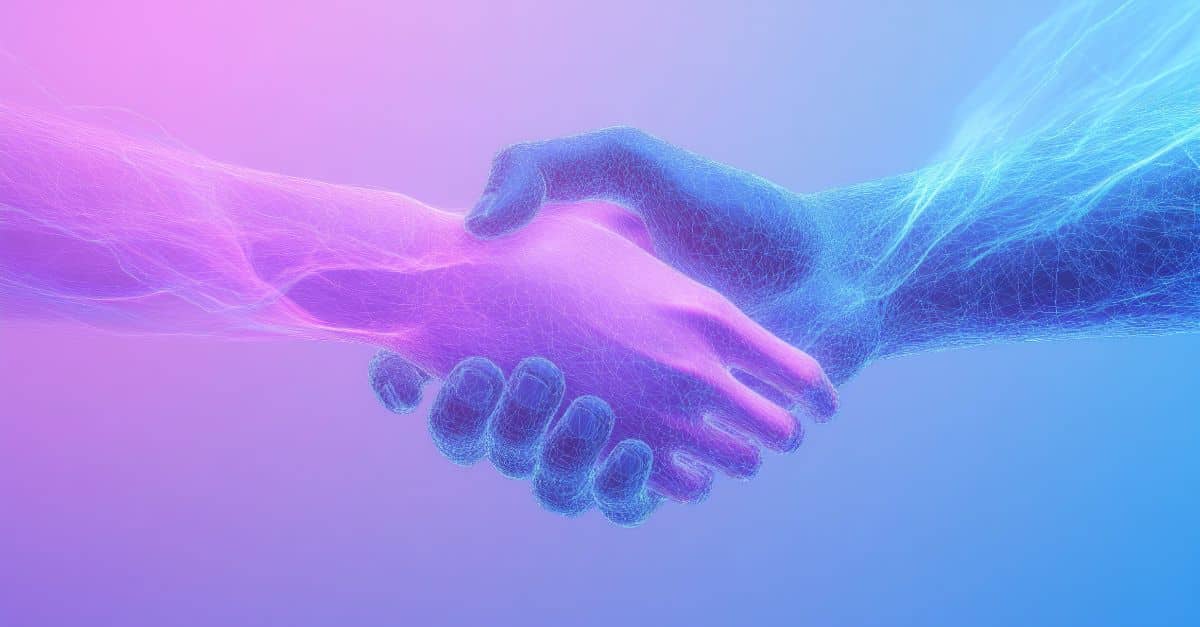As the technology behind natural language processing advances, chatbots and virtual assistants powered by GPT-3 and now GPT-4 are becoming increasingly prevalent in a variety of industries. While this technology has the potential to revolutionize the way we interact with computers and automate many routine tasks, it also raises questions about the future of work.
In this blog post, we will explore how ChatGPT (a specific implementation of GPT-3/4) may impact jobs, including which positions may change, morph, or disappear entirely. Additionally, we will discuss the shift toward prompt creatives and how ChatGPT is democratizing creativity. Let’s dive in.
ChatGPT wrote this introduction. Sounds convincing, right?
Released last November, ChatGPT has received global attention for its ability to write well-written, instant responses to questions and prompts. The OpenAI tool continues to gain momentum, with many people complaining about the inability to handle the influx of requests due to being “at capacity.”
The jury is still out on whether ChatGPT performs better than the average human writer — or provides average, uninspiring responses based on a collection of responses that live online.
Before we delve into how ChatGPT will impact jobs, let’s take a step back to understand the evolution of machine learning. Machine-learning models are not new. Take ubiquitous examples like Siri and Alexa that take in speech, turn it into text, identify the prompt, and return a mostly acceptable answer. Or consider your phone’s photo app that stores metadata from your photos, like location and date, and performs image recognition tasks. This allows you to search for “dog” and returns all related pictures or text. These machine-learning use cases can save hours in manual searches or organization.
The difference with ChatGPT is that its machine-learning model has a full conversational interface. Similar to the Eightfold AI Talent Intelligence Platform, ChatGPT AI can take on routine tasks and enable people to improve where machines cannot.
In a talent intelligence platform, AI doesn’t take over a job — it surfaces recommendations so people have more information to make better decisions.
Generative AI in a talent intelligence platform creates new opportunities for candidates, employees, and contractors that might not have easily surfaced for them before. For candidates, it’s about surfacing jobs they might not have identified for themselves. For employees, it’s about finding projects or courses to upskill. And for contractors, it’s finding the part-time work or gigs best suited to their skill sets. Like ChatGPT, it still needs a human component to tell it what to do, refine recommendations, and actually use uniquely human skills to interact with people.
RELATED CONTENT: Read our latest white paper on responsible AI.
ChatGPT — fun phenomenon or threat to jobs?
The allure of ChatGPT is that it’s easy to use. There’s no code needed, and its incorporated feedback loop lets people upvote or downvote answers.
Some people argue that as ChatGPT advances, it could replace anyone who writes for a living: journalists, technical writers, content writers, copywriters, and even writing for the legal industry. ChatGPT may also impact customer service representatives since the software can provide support and give a sense of “empathetic help,” which makes customers feel like they’re talking with a real person.
On the plus side, other occupations could use generative AI tools to benefit and improve their work, allowing workers to be more productive and focus on higher value tasks. For example, programmers can use such tools trained on GPT-4 (Generative Pre-trained Transformer 4) to create advanced natural language processing applications, streamline complex data analysis, enhance conversational AI interfaces, and develop innovative solutions across diverse industries, such as healthcare, finance, and education. People can thereby focus on more complex problem-solving, designing new software architectures, collaborating with other team members, and refining the quality of the final product. These tools are also great for entry-level programming learning and students to use in school.

This poses a question that has been top of mind for business leaders and workers as automation has picked up across industries. Instead of being threatened by technological advancements, including AI, how can we better implement technology to support workers and improve jobs?
As ChatGPT learns over time and becomes a better product with realistic answers, it will depend on how people choose to use it. Some creative writers may transition into “prompt creatives.” They will use ChatGPT or similar technology for an initial draft, research, or ideas gathering. The writer’s skills can instead be applied to editing and finessing the output.
In this case, AI will do the cognitive load of creative writing, including premises, arguments, and phrasing. As an economist and author myself, it’s now easy to imagine no longer struggling to create a first draft. Instead, the emphasis would be less on wordplay and more on developing fresh ideas. Using AI could lead to increased productivity, creating opportunities in new areas. Perhaps ChatGPT could create enhanced messaging with powerful influence to convince, change, support, or drive action from a specific audience.
The ethical dilemma that is ChatGPT
That’s an optimist’s point of view. Unfortunately, there are also the potential negative ramifications of putting technology of this sophistication into the hands of workers, students, and citizens.
The use of data-intensive and AI-based technologies presents both significant opportunities and risks. These technologies have the potential to solve some of the world’s biggest challenges, but could also endanger privacy and security if organizations adopt them without considering the larger social and economic contexts.
ChatGPT by itself can produce vast sums of content, but its origins are not always clear, and its output has not been thoroughly verified, making it potentially harmful if misused. In addition, data privacy and security is another large concern as AI systems can collect large amounts of personal data, leading to potential identity theft, fraud, or other harm.
To solve these problems, new complementary and overlay tools could arise to identify and minimize disinformation.
Indeed, AI Ethics is a complicated and fascinating subject that requires careful thought, advanced research, and analysis of potential implications to ensure that the technology is used for good and doesn’t cause harm.
As creators of an AI-powered talent intelligence platform, we are strong advocates for the ethical and responsible use of AI. As a result, we formed the Eightfold AI Ethics Council, a group dedicated to the execution of responsible AI practices. We rely on their input and advice on best practices to ensure that our AI platform minimizes bias and promotes equality in employment.

The future includes AI like ChatGPT: It’s up to people to use it wisely
ChatGPT can help with a rough draft of a meeting agenda, but it can’t hold the meeting for you. Likewise, it doesn’t know the intricacies of a company’s unique messaging or have access to in-depth primary resource interviews. For the time being, it’s a brainstorming tool that provides a foundation to build on. When bolstered by industry experience, execution, critical thinking, teamwork, and collaboration, the value of creative ideas will prevail.
This is the time when organizations can get ahead of the curve by bringing new ideas to the table and creating new processes or programs that positively impact the lives of their employees and customers. New AI technology like ChatGPT shouldn’t threaten our creativity, it should instead let us reframe our thinking in terms of how work gets done, how new workplace tools and technologies can improve jobs, and how we can adapt to find the right career for everyone in the world.
To learn more about the impact of ChatGPT on the future of work, read our latest article.











